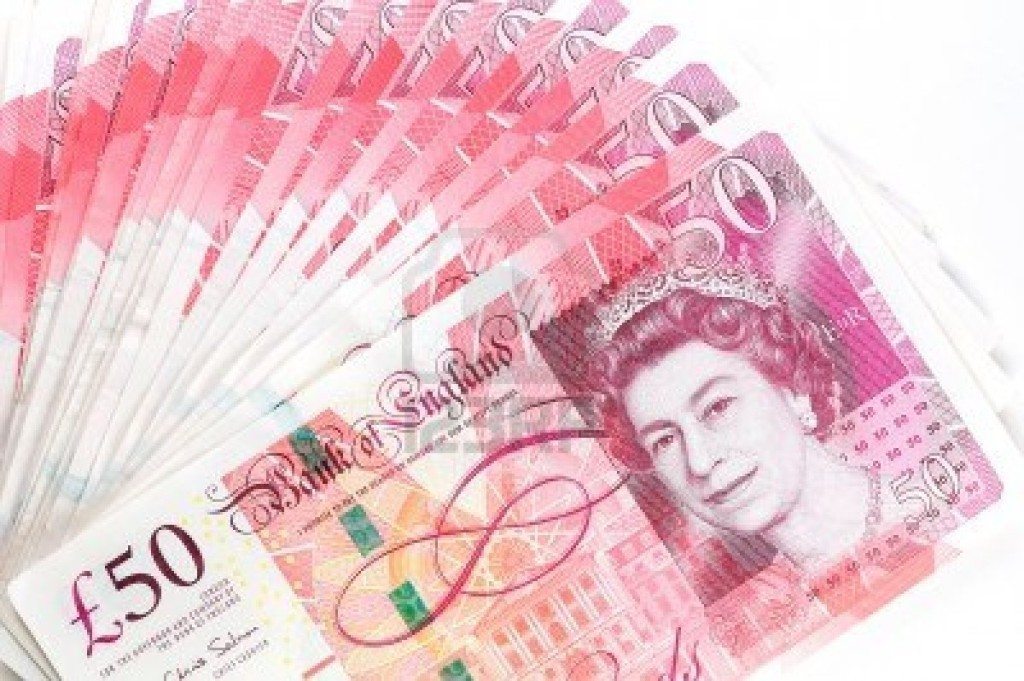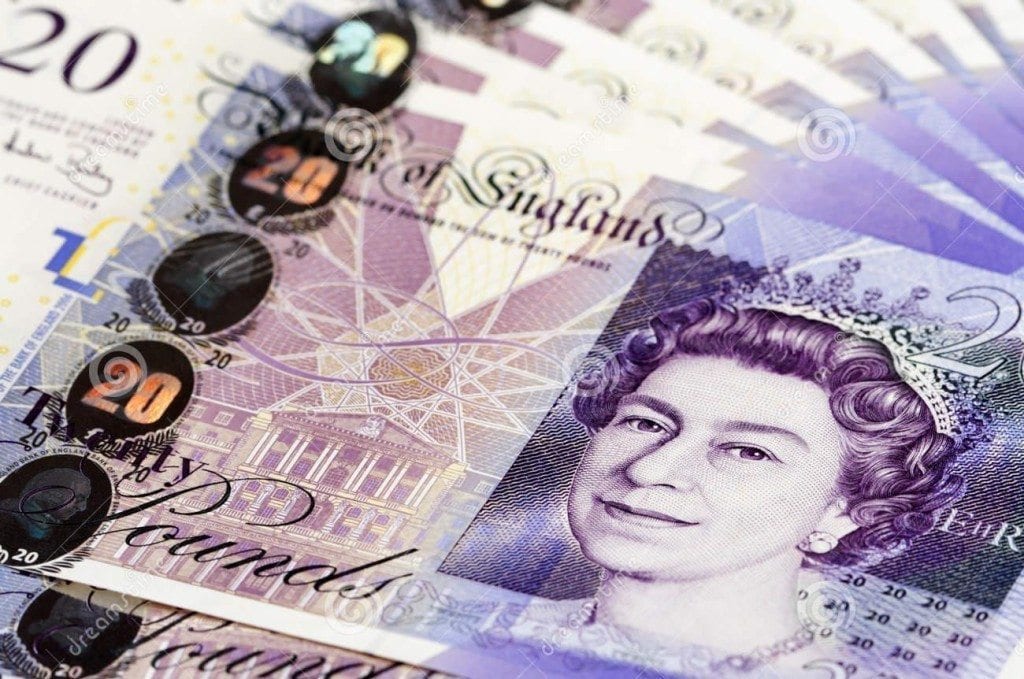British pound ceased to be an acceptable means of exchange in Nigeria in 1973 after the Nigerian Naira was introduced. So, if you’re planning to travel or send money from Britain to Nigeria, you will be required to convert your currency from British pounds to Nigerian Naira before you can actually transact or proceed with the sending of money.
Also to note, the exchange rate between the British pound and Nigerian Naira keeps on fluctuating by going slightly above or below N700 Naira for one British pound. But before we look at how to convert British pounds To Naira, let’s look at the Naira in great detail.
To start with, the code for Nigerian Naira is NGN. In addition to that, the Naira is broken down into 100 Kobo and, both the Kobo and the Naira have no plural nor singular forms but instead remain the same in both cases. The Naira completely replaced the sterling pounds in 1976 and has been the acceptable means of exchange in Nigeria ever since.
How To Convert British Pounds to Naira
Coins and Bank Notes
Just like the currency in any other country, the Naira has both coins and notes. The coins are divided into three denominations – I Naira, 2 Naira and 50 Kobo. Bank notes, on the other hand, are availed in 8 different denominations: 1000 Naira, 500 Naira, 200 Naira, 100 Naira, 50 Naira, 20 Naira, 10 Naira and lastly, 5 Naira. The larger denominations are not used often when compared to their smaller counterparts.
You can choose to exchange your money in the different exchange facilities, which may also include hotels, or in the banks. The exchange rate is usually determined by the government and it’s always above 200 Naira for one pound. You’re, however, advised not to exchange your money in the black market as it’s not only dangerous but also illegal in Nigeria.
Additionally, credit cards are barely accepted by most businesses in Nigeria because of fraud, and you’ll be expected to present cash every time you decide to buy something. Similarly, if you have a traveller’s check, then you can only exchange it from the big banks in Nigeria and most of them are found in the big cities.
Steps for Converting Money from British Pounds to Naira
1. First, set aside all the money that you intend to convert from British pounds to Naira. Start by working out your budget and see how much you’re ready to spend in Nigeria before you can proceed to the next step.
2. You can now open the ‘coin mill currency converter’ site, by simply searching the site in the search engines before clicking on the first link that pops up. Open the currency calculator and set it to convert from British pounds (GBP) to Nigerian Naira (NGN). You can now enter the amount that you want to exchange in the British pound column before clicking on the ‘convert’ link. You will be presented with the total amount of Naira that you’re supposed to be given after you’ve exchanged the money.
3. Go ahead and confirm the exchange rate by checking out a site that frequently updates the exchange rates – an example is the exchange rates site. Then use a calculator to calculate the amount that you’re supposed to get after converting your money.
4. Before you decide to convert your money from anywhere else, first talk to your bank to see if they deal with foreign conversions. If they do, then go ahead and change your money to Naira. It’s advisable to convert your money from a bank as they charge a smaller fee when compared to the other currency exchanging facilities. They’re also at par with the current exchange rates hence more appropriate if you want to avoid exchange rate losses. You will be charged a small fee for this service and to avoid being charged several times, then convert all the money that you need once instead of doing it in bits.
To conclude, it’s better to exchange all your money in your home country before traveling to Nigeria. This is because it’s way safer and easier to exchange your money from Europe than it is in Nigeria. In addition to that, try to avoid using street vendors to exchange your money as most of them are actually conmen and may give you fake money, let alone exchange your money at the lowest rates.
Why is the Naira so Weak?
The first reason why the naira is so weak is the declined forex supply. This means that the supply of dollars to the economy has been declining while the demand for dollars remains relatively unchanged courtesy of the country’s huge demand for dollars fuelled by dependence on imported goods for many economic activities.
The weakening of the naira is also triggered by the continuous decline in foreign investment inflow into the economy and by the new operational measures for the forex market announced by the CBN on June 14. These measures include the elimination of multiple exchange rates in the official market and the introduction of the willing buyer willing seller model for determination of the exchange rate in the I&E window.
Why is It Called Naira?
The name “Naira” was coined from the word “Nigeria” by Obafemi Awolowo who at the time was the Federal Commissioner of Finance. According to the Central Bank of Nigeria, the name “naira” was chosen because it is a relatively neutral term that is unlikely to be associated with any particular ethnic group. Naira as a currency was launched by Shehu Shagari as minister of finance in 1973.
What Factors Affect the Nigerian Currency
There are many factors affecting the Nigerian currency. They include the widening gap between the official and parallel market exchange rates of the Nigerian naira, fluctuations in oil prices, global economic impact of the COVID-19 pandemic. Data from the CBN shows that Net Forex Inflow into Nigeria has been falling since 2019 as a result of the fall in foreign investment inflow into the economy.
Who Prints Naira?
The Nigerian Security Printing and Minting Company Plc is responsible for the printing of the Nigerian banknote and mint. It is located in both Abuja and Lagos and is majority-owned by the government of Nigeria. While the CBN is the sole issuer of legal tender money throughout the Federation and the controller of the volume of money supply in the economy in order to ensure monetary and price stability, the Nigerian Security Printing and Minting Company Plc is also responsible for printing stamps, postal orders and licences. The company was founded in 1963 as a partnership between the Federal government of Nigeria and De La Rue.
Why is the British Pound so Valuable?
The overall state of the British economy, interest rates, and inflation are among the many reasons why the British pound is so valuable. The Bank of England has, no doubt played a crucial role in international economic developments which has in turn helped to strengthen the Pound. The British economy has long been one of the strongest and most stable in the world. The pound is also often used as a reserve currency by other countries and central banks, which helps to support its value.
Top Facts about British Pounds
- The British pound sterling is the United Kingdom’s official currency (comprised of England, Scotland, Wales and Northern Ireland).
- pound sterling is issued by Bank of England. The Bank of England is the only recognised authority for over 300 pound sterling.
- The pound sterling is the oldest existing currency, with origins that can be traced back to 1200 years ago in continental Europe.
- The British pound was historically equivalent to the value of one pound of silver, hence why it’s sometimes referred to as the “pound sterling.”
- Henry VII’s reign began in 1489, the year the first pound coin appeared. Shortly after the Bank of England was established in 1694, handwritten pound banknotes began to circulate in England.
- British pounds are made of polymer, not paper. This is to increase its life span and make the bill harder to counterfeit. However, the currency remains one of the most counterfeited currencies in the world. The U.K. government estimates that at least 2.5% of its pound coins are counterfeit.
- On February 15, 1971, the pound sterling was officially decimalized into 100 new pence. The symbol £ was retained for the pound sterling, and the letter p was chosen for the new penny.
Top Facts about the Nigerian Naira
- The Nigerian naira was introduced in 1973 when the country decimalized its monetary system and substituted the naira for the Nigerian pound (the country used the British pound sterling when it was a British colony), which was divided into shillings.
- The Central Bank of Nigeria, which was established in 1958 issues and manages the naira and the currency was first issued in 1973.
- The Nigerian Naira is subdivided into 100 kobo, which is the smallest unit of currency. The currency also comes in physical denominations such as coins and banknotes with various denominations available, ranging from 1 kobo coins to 1000 Naira banknotes.
- At a rate of two naira for every pound, the currency first replaced the pound sterling in 1973
- Due to an economic crisis, the Naira had its first devaluation in 1985. Since then, it has been tied to the US dollar at various rates to control inflation in Nigeria’s economy.
- One Nigerian Naira is equal to 0.0022 US Dollars as of January 2023. The currency can also be purchased, exchanged, and traded in various money markets around Nigeria.


